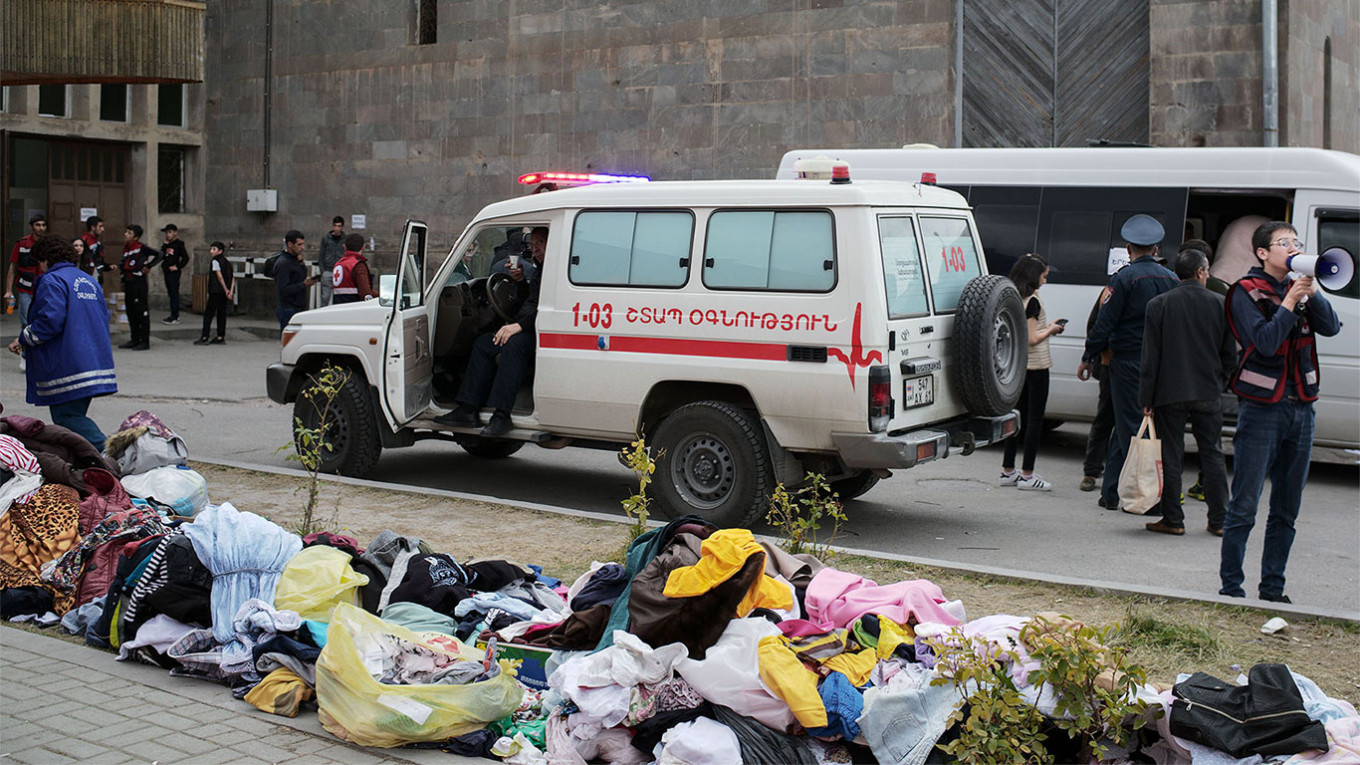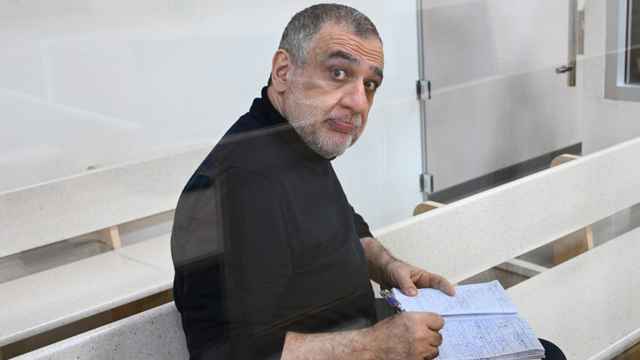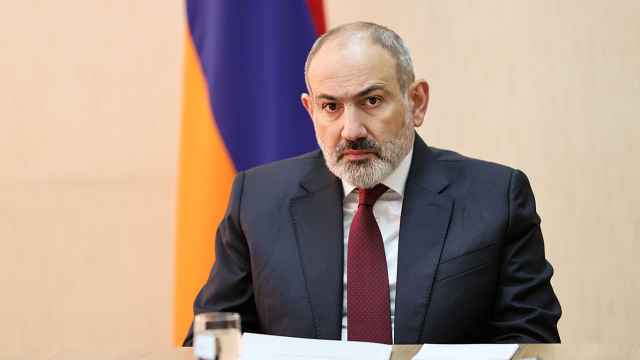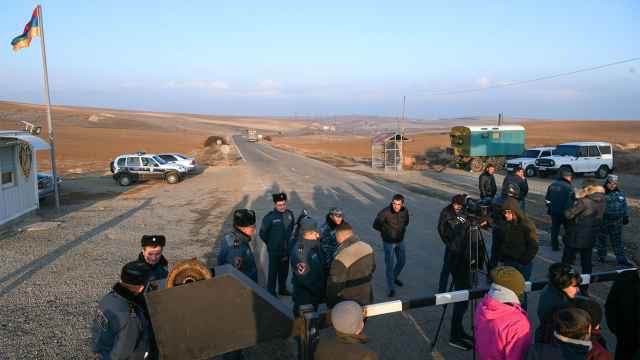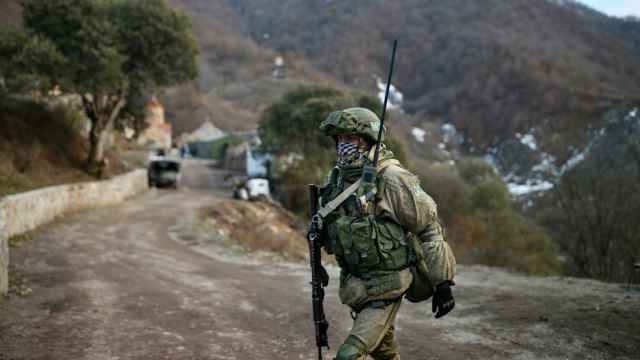GORIS, Armenia — Aram Grigoryan spent his early 20s serving in the Soviet army from 1989 to 1991.
But those years spent working in Moscow left him with no lasting affinity for the Russian peacekeepers who he says are to blame for failing to prevent Azerbaijan’s takeover of his homeland of Nagorno-Karabakh.
“Right in front of the peacekeepers’ eyes, the Azeris attacked a peaceful population, and they just stood by,” he said, smoking a cigarette on the porch of Hotel Goris — one of the many hotels in southern Armenia’s Syunik province that have become filled with ethnic Armenians who fled Azerbaijan’s offensive.
Grigoryan left the village of Yeghtsahogh as darkness descended on Sept. 19, the day that shelling began, leaving behind his home and all his possessions. He eventually arrived in Armenia on Sept. 25 with his wife and 13-year-old son, all carrying only the clothes on their backs.
Many refugees share his anger — directed at both the peacekeepers and the international community — over the failure to prevent a situation that has raised concerns of ethnic cleansing. Most, like Grigoryan, are currently living in hotels as they attempt to plan their next steps.
Russian peacekeepers were first deployed to the disputed region of Nagorno-Karabakh at the end of the 2020 war between Armenia and Azerbaijan, which saw Baku retake much of the territory it had lost to Yerevan in the first Nagorno-Karabakh War in the 1990s.
At the time, President Vladimir Putin promised that the peacekeepers would enforce the ceasefire, protect the region’s predominantly ethnic Armenian population, and ensure access to the Lachin corridor, the only road linking Nagorno-Karabakh with Armenia — all of which Russia has since reneged on.
“Russia has abandoned us,” 65-year-old Volodoya Sargsyan says while waiting outside Goris’ Vagharsh Vagharshyan Drama Theater, a makeshift reception facility in the town center that has processed many of the 100,000 refugees who have fled to Armenia since Sept. 19.
Sargsyan left Nagorno-Karabakh on the back of a truck that was towed by another due to a petrol shortage caused by Azerbaijan’s nine-month blockade of the Lachin corridor.
That blockade, which Russian forces did not prevent, left the population exhausted and short on supplies, laying the foundations for Azerbaijan’s swift military offensive.
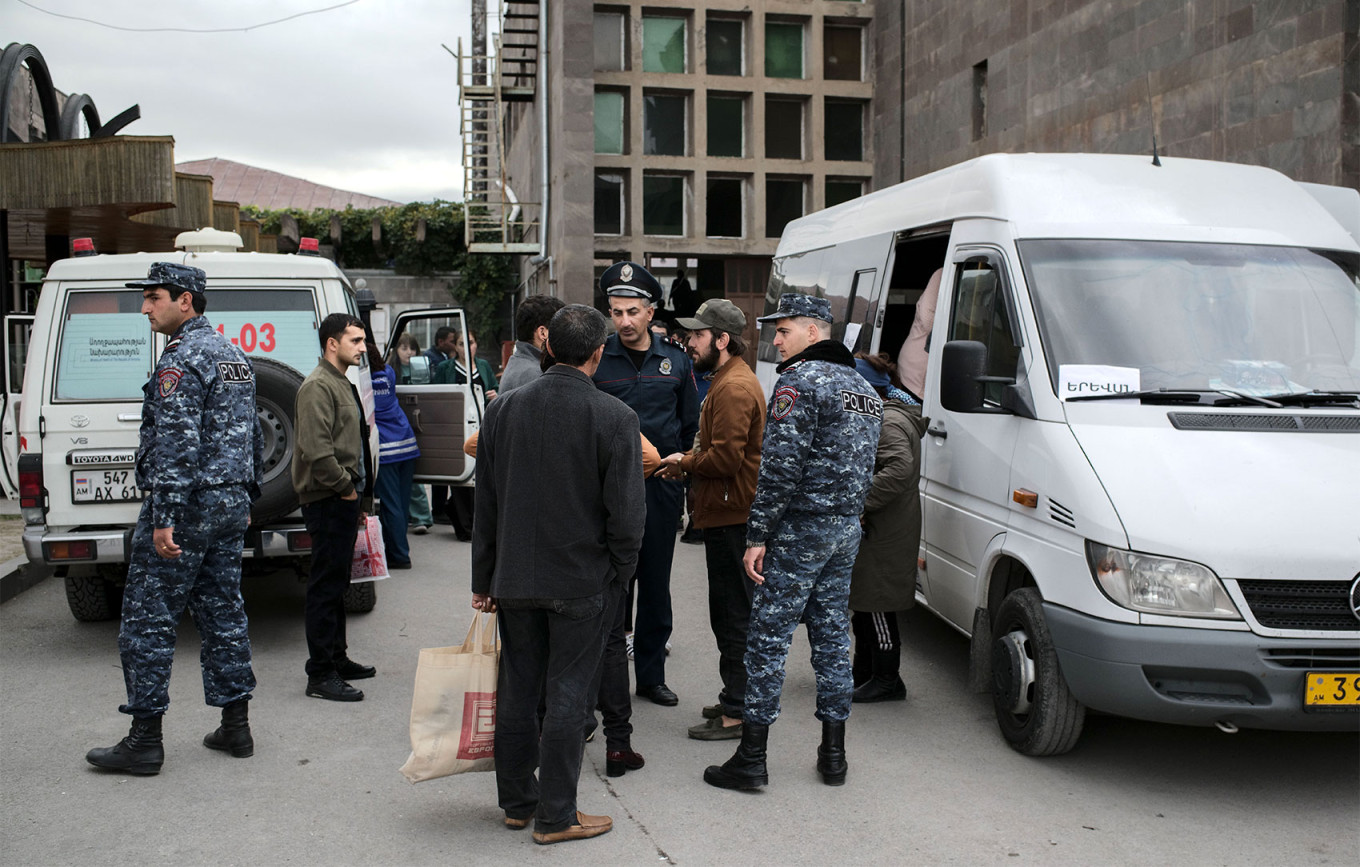
But not all those who fled share the same resentment toward Russia.
Shoghik Beglaryan was evacuated by Russian peacekeepers from her town, Askeran, on the day Azerbaijan’s offensive began. The 59-year-old grandmother and her family were taken to a Russian base in Nagorno-Karabakh that became a temporary home for thousands before the Lachin corridor was eventually opened on Sept. 24.
“If it wasn’t for the Russians,” she says, “we would be dead. We were expecting more terrible things to happen. We thought that if the Azeris got to us, it would be the end.”
Her fears are not unfounded. In the previous flare-ups of the on-and-off conflict that she’s lived through since the 1990s, civilians on both sides have been killed in large numbers. At least 143 civilians died during the 2020 war.
Analysts say that throughout each iteration of the conflict, Russia has earned a reputation for switching sides to suit its own interests. A joke in the South Caucasus states that if Russia had to choose a side between Armenia and Azerbaijan, it would always choose “conflict.”
Yet it is in fact another conflict, the war in Ukraine, that has pulled Russia’s focus away from its decades-old policy of strategic mediation.
Experts say that war-related sanctions on Russia have increased Moscow’s dependence on Turkey and Azerbaijan, which it sees as crucial to connecting it to Iran and South Asia. This is exemplified by an agreement reached in May for the construction of a new railway that will allow uninterrupted shipping via Azerbaijan along the International North-South Transportation Corridor (INSTC), a project previously seen as improbable.
“Russia is driven partly by a lack of capacity to contain Azerbaijan’s efforts to create new facts on the ground, but also by calculations that Azerbaijan has become a more important partner for its post-Ukraine war connectivity,” Laurence Broers, an expert on the Caucasus at Chatham House, told The Moscow Times.
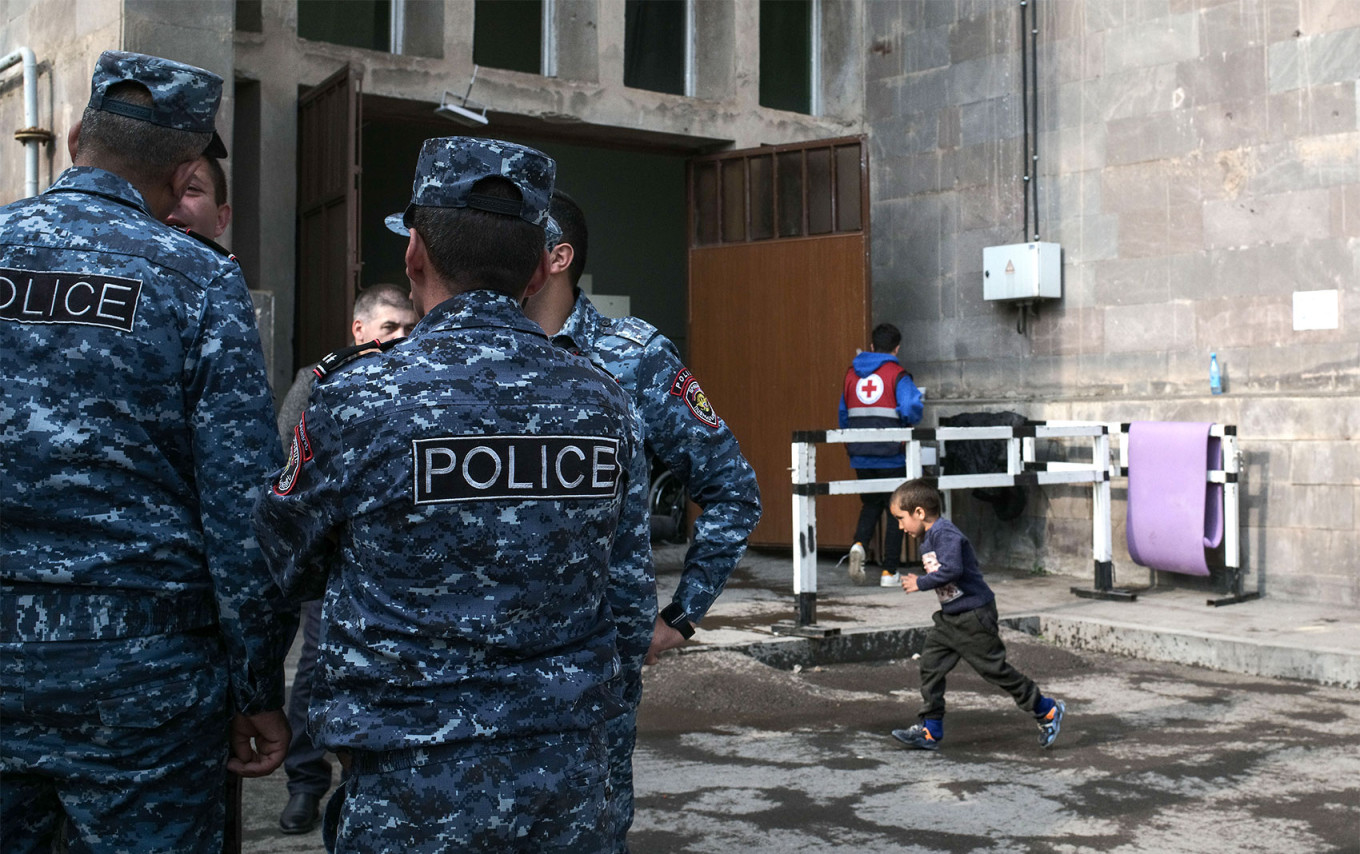
“Armenia’s value conversely has declined and Yerevan’s recent overtures to the West have given additional cover for the Kremlin’s pívot to Azerbaijan,” he said.
Those overtures include hosting U.S. troops for joint military drills and moving to recognize the jurisdiction of the International Criminal Court after it indicted Putin — both of which drew the ire of Moscow.
“The Armenian leadership is making a huge mistake by deliberately attempting to sever Armenia’s multifaceted and centuries-old ties with Russia, making the country a hostage to Western geopolitical games,” the Russian Foreign Ministry said.
So far, the Kremlin has skirted accusations of Russian negligence in Nagorno-Karabakh, with Putin’s spokesman Dmitry Peskov saying “It is hardly possible to talk about who is to blame.” According to him, there was “no direct reason” for the exodus of some 100,000 people from the region.
This explanation doesn’t cut it with Grigoryan, who said: “I have even reached the conclusion that the Russians and Azeris were cooperating.”
With Nagorno-Karabakh's separatist ethnic Armenian government set to dissolve by the end of the year, it looks unlikely that any of those who fled the region in the past month will ever be able to return to their homes.
For Grigoryan and his family, their best hopes of finding new accommodations lie with the Armenian government.
“If they can’t help,” he says, “we will all be homeless.”
A Message from The Moscow Times:
Dear readers,
We are facing unprecedented challenges. Russia's Prosecutor General's Office has designated The Moscow Times as an "undesirable" organization, criminalizing our work and putting our staff at risk of prosecution. This follows our earlier unjust labeling as a "foreign agent."
These actions are direct attempts to silence independent journalism in Russia. The authorities claim our work "discredits the decisions of the Russian leadership." We see things differently: we strive to provide accurate, unbiased reporting on Russia.
We, the journalists of The Moscow Times, refuse to be silenced. But to continue our work, we need your help.
Your support, no matter how small, makes a world of difference. If you can, please support us monthly starting from just $2. It's quick to set up, and every contribution makes a significant impact.
By supporting The Moscow Times, you're defending open, independent journalism in the face of repression. Thank you for standing with us.
Remind me later.



